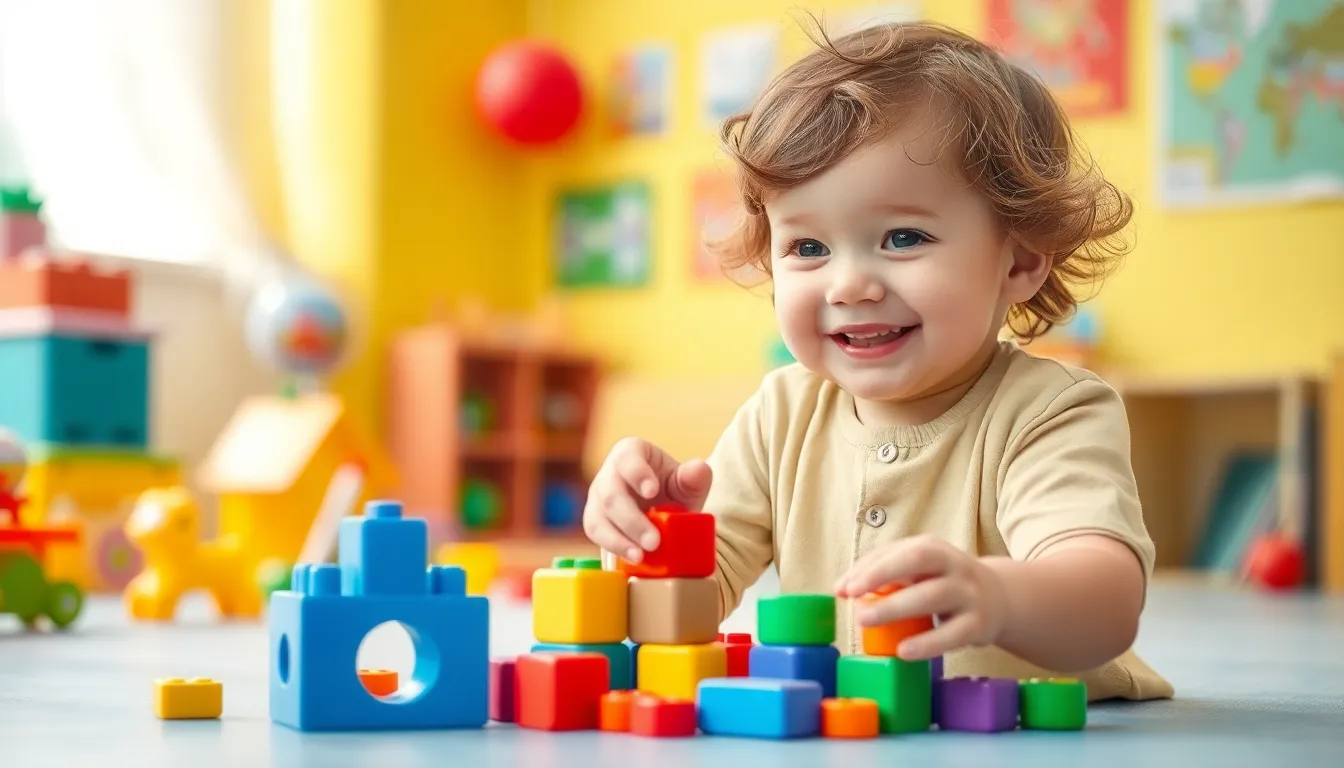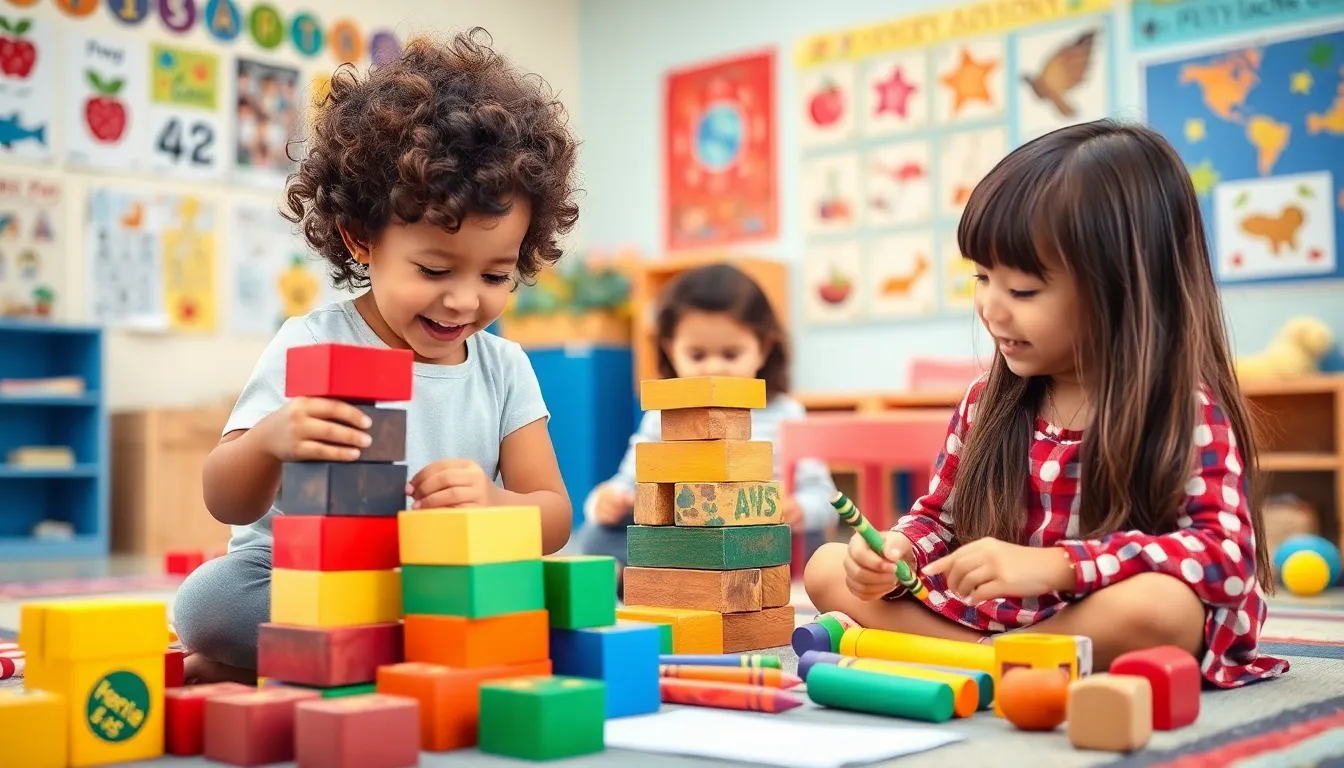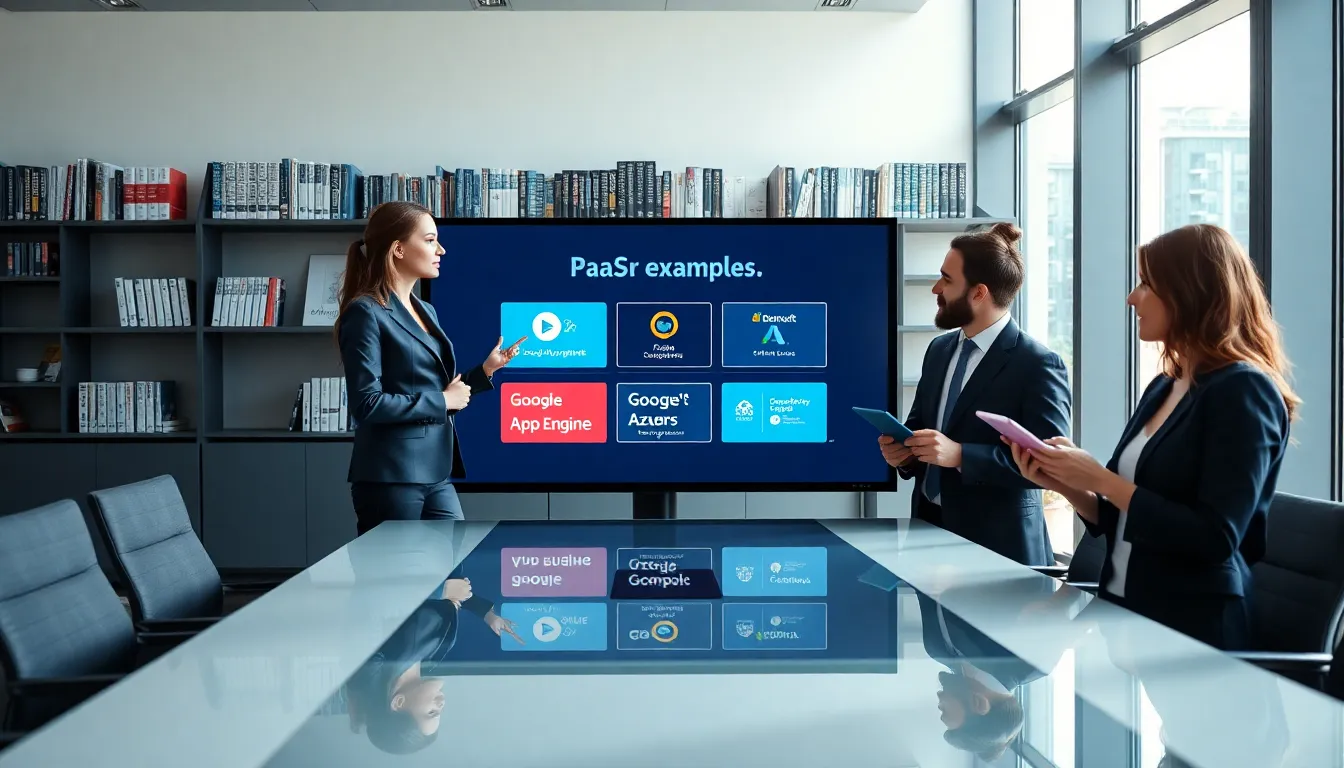Deciding when to send a child to preschool can feel like choosing the perfect avocado—too early and it’s hard, too late and it’s mushy. Parents often find themselves caught in a whirlwind of opinions, schedules, and developmental milestones. But fear not! This guide will help navigate the delightful yet daunting world of preschool timing.
Table of Contents
ToggleUnderstanding Preschool Age Requirements
Preschool enrollment typically revolves around age, developmental readiness, and local regulations. Knowing the general age criteria helps parents determine the best time to introduce their child to preschool.
Typical Age Ranges for Preschool
Children often begin preschool between three and four years old. Many programs accept children as young as three, emphasizing socialization and early learning. As these children approach the age of four, they engage in more structured activities. Some schools offer pre-kindergarten classes, targeting children who turn five by specific dates, usually falling between late summer and early autumn.
Variations by State and Program
Age requirements can vary by state and preschool program. Different states maintain distinct regulations regarding preschool enrollment, impacting eligible ages. Some states require children to be four years old to enroll, while others allow earlier entry. Parents should check local guidelines to fully understand age prerequisites for specific programs. Additionally, factors such as program type—public, private, or cooperative—can influence age criteria, with some accommodating younger children.
Factors to Consider Before Starting Preschool

Deciding when to start preschool involves multiple factors that play a crucial role in making the right choice. Parents should evaluate several aspects of their child’s development and family dynamics.
Child’s Readiness and Development
Child development varies significantly among three and four-year-olds. Skills such as communication, emotional regulation, and social interaction should be assessed. If a child shows curiosity about the world, enjoys group play, and can follow simple instructions, those indicate readiness for preschool. Additionally, fine motor skills, such as using scissors or holding a crayon, should be observed. Early learning programs often cater to various developmental stages, making it essential for parents to find a program aligned with their child’s current skills and needs.
Family Preferences and Schedules
Family preferences heavily influence the decision to start preschool. Some families prioritize full-day programs for structured learning, while others may choose part-time options to allow for family time. Arranging schedules around work commitments and school timing also impacts enrollment decisions. Flexible programs that accommodate busy lifestyles can appeal to parents. Evaluating the distance to preschool and transportation options should factor into the equation. Ultimately, aligning preschool start dates with family needs ensures a smoother transition for both the child and the parents.
Benefits of Early Preschool Enrollment
Early preschool enrollment provides numerous advantages for children. Children engage with peers during formative years, which fosters crucial social skills.
Socialization and Interaction
Socialization takes center stage in preschool environments. Kids learn to share, take turns, and resolve conflicts with others. Interaction with a diverse group of children enhances their communication skills. Group activities encourage collaboration, helping children develop empathy. Moreover, these experiences ease future transitions into structured settings, like elementary school. Programs designed for younger children prioritize social engagement, ensuring they feel comfortable and confident in social scenarios.
Cognitive and Emotional Development
Cognitive growth occurs rapidly during early childhood. Preschool introduces a variety of learning experiences through play that stimulate curiosity. Activities like storytelling and art projects enhance language skills and creativity. Additionally, engaging in structured routines helps children develop self-regulation and emotional awareness. Emotional development is supported by understanding feelings and expressing them appropriately. Effective programs focus on nurturing both cognitive and emotional growth, laying a strong foundation for lifelong learning.
Alternatives to Traditional Preschool
Parents often explore alternatives to traditional preschool to meet their child’s early learning needs. Home schooling and learning pods provide unique opportunities tailored to individual circumstances.
Home Schooling Options
Home schooling offers flexibility in curriculum and scheduling. Parents create a learning environment at home aligned with their child’s interests and developmental stage. Resources like online courses, educational apps, and community classes enhance the learning experience. Many families appreciate the ability to customize lessons, allowing for personalized attention and focused skill development. While home schooling may require more time and commitment from parents, it fosters deeper parent-child relationships and encourages a love for learning.
Learning Pods and Co-ops
Learning pods and co-ops emerge as popular options among families seeking socialization and structured learning. In a learning pod, a small group of children can gather for guided lessons, often led by a parent or hired educator. These settings promote collaboration and peer interactions, essential for social skill development. Co-op arrangements allow families to share teaching responsibilities, making education more community-oriented. Both options enable parents to tailor educational experiences, connecting with other families for shared resources and support.
Deciding when to start preschool is a significant milestone for both parents and children. It’s essential to consider each child’s unique readiness and developmental needs. By evaluating factors like age, social skills, and family dynamics, parents can make informed choices that align with their child’s growth.
Exploring various preschool options can also provide valuable insights into what best suits a child’s learning style. Whether opting for traditional preschool, home schooling, or learning pods, the goal remains the same: to foster a love for learning and support social and emotional development. Ultimately, the right decision will pave the way for a smooth transition into future educational settings.




